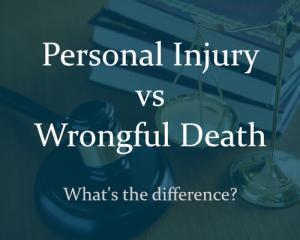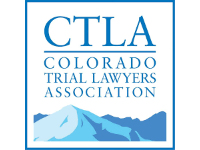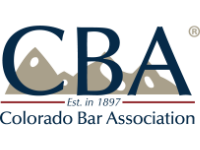
Call Us 24/7 For A Free Legal Consultation






When a loved one is fatally injured due to the negligence or unlawful behavior of another person or company, it is considered a wrongful death and when acted upon, the beneficiaries of the deceased are entitled to damages from the at-fault party. The question that arises in these tragic scenarios is who would actually be entitled to the money that is received from the settlement or lawsuit? Here we will take a deep dive into who is entitled to recover according to Colorado law and what may have an effect on the distribution in certain circumstances.

The question of who may be entitled to recover for a wrongful death is complicated. If you have any questions or are pursuing a wrongful death claim, get in touch with our top rated Colorado wrongful death attorneys today for a free consultation on your case.
In a wrongful death lawsuit, the following parties are entitled to bring a claim against and collect monetary damages from the at-fault party: surviving spouses, children, dependants, designated beneficiaries and parents. The persons that are not entitled to bring forth a claim are siblings, nieces, nephews, cousins and friends. Let’s remember though, you have to have a valid claim to receive compensation so if you aren’t sure, check out our guide on how to know if you have a valid wrongful death case.
This sounds pretty straight forward, but the details make a big difference if there are multiple parties that may be entitled to the damages. Here we will go into detail on the specifics of who has the ultimate right to file the claim over others depending on the surrounding factors.
#1 Surviving Spouses – The person at the top of the list to receive the settlement funds after a wrongful death would be the surviving spouse of the deceased. The spouse of the deceased enjoys the exclusive right to make a claim in the first year, unless the spouse elects to allow the heir or heirs of the deceased to either join in the claim, or else take over the claim entirely. The spouse can file a wrongful death claim right away and would be the rightful beneficiary of the settlement.
#2 Heirs– In the event that the deceased did not have a surviving spouse, the children or heirs would be the persons that are entitled to the wrongful death settlement. If the children or direct heirs are no longer living, then the next in line would be the lineal descendants, to include grand-children, if any exist.
#3 Parents – If no spouses, children or other lineal descendants are living at the time of death the parents of the victim would have the right to the claim.
Siblings are not entitled to settlements received for wrongful death lawsuits as well as nieces, nephews and cousins. The law strictly states that only spouses, children, lineal descendants and parents of the deceased have the right to sue for compensation.
It is also important to note that rightful heirs may or may not choose to file a wrongful death lawsuit and based on that, heirs that are first in line may not be the ones to file the suit. For example if there is a surviving spouse that does not want to pursue damages, but the children of the victim decide they want to, the lawsuit would be filed on behalf of the children instead of the spouse, either in the first year with the written consent of the spouse, or in the second year following the death of the deceased. Rightful heirs may also in some circumstances join other rightful heirs in their lawsuit and combine their claims into one larger settlement.
This is a tricky question, and depends in large part on who actually files a suit. For example, if a person dies unmarried and without children, then his or her parents each have an equal right to the settlement. In other circumstances, the question of how to divide the settlement proceeds can become far more complicated. This is why it is always advisable to consult an expert Colorado Springs wrongful death lawyer to answer any questions that will invariably come up in such a circumstance.
Colorado law allows for recovery of both economic and non-economic damages. Economic damages include loss of support of the deceased, such as lost income and other financial support. There is no cap or limitation on the amount of economic damages that can be awarded in a wrongful death case in Colorado. The non-economic damages are what would be paid out for the family’s suffering, greif, and emotional damages. It is important to note that there is a cap on the amount of non-economic damages that can be paid out in a wrongful death case currently set at $571,870. This amount is only applicable in deaths that occur after January 1, 2020. The amount is capped at $436,070 for deaths that occurred prior to January 1, 2020.
The law for filing wrongful death lawsuits in Colorado states that you have 2 years from the date of the death to file a claim. This is extended to 4 years in the event that the deceased was killed in a hit and run accident, but only in those circumstances, so if you are approaching the two year mark on your claim, make sure to contact a Colorado Springs wrongful death lawyer right away to discuss your claim.
1st Year After Death – The only person who can bring a wrongful death claim in the first year after the victim’s death is the surviving spouse. If the spouse decides not to file a claim they can state in writing that they allow the children or dependants to file a claim on their own or the spouse may choose to join the children in filing the claim. In the event that the deceased was not married, then the children or descendants have the right to file a suit within the first year. In the event there are no children or descendants, the parents would have the right to file a claim within the first year.
2nd Year After Death – In the second year following the person’s death, any of the other eligible claimants or a combination of the eligible claimants may file a wrongful death claim against the at-fault parties.
If you have a wrongful death claim, but you’re still asking yourself, what a wrongful death lawsuit is, you need to make sure you have the right law firm on your side to handle the process for you and ensure you are getting what you are really owed. Here at Rector Stuzynski LLC, we have decades of experience with wrongful death lawsuits and have recovered millions of dollars for our clients. Every case gets the attention it deserves so that nothing is missed or left behind and you can rest easy knowing that you made the right choice when choosing your attorney.
We have an extensive track record of wins and our testimonials are there to prove how much our clients love us. Don’t let a mediocre attorney handle your case, call Rector Stuzynski LLC today to speak with our top rated wrongful death attorneys about your case. Consultations are always free and available over the phone 24/7 or feel free to stop by our office in Downtown Colorado Springs.
We serve clients injured anywhere throughout the state of Colorado, but we focus on residents of these areas: Colorado Springs, Manitou Springs, Fountain, Briargate, Monument, Black Forest, Pueblo, Canon City, Larkspur, Security-Widefield, Peyton, Castle Rock, Teller County, El Paso County, Elbert County, Park County, Douglas County and beyond.
Consultations are always free and available 24/7 over the phone.